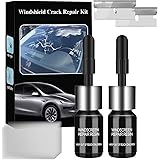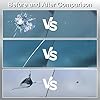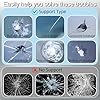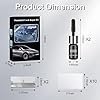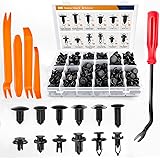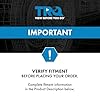Table of Contents
That heart-dropping phone call from your spouse after a car accident is stressful enough without the added worry of potential financial ruin. If your spouse was at fault, you may be asking yourself, “am i liable if my spouse causes a car accident?” The answer is not a simple yes or no. Your liability depends on a complex interplay of factors, including who owns the vehicle, the specific laws of your state, and the details of your insurance policy.
While the general legal principle holds individuals responsible for their own negligent actions, several doctrines can extend that financial responsibility to a spouse. This comprehensive guide will navigate the intricacies of spousal liability, explaining the key concepts that could put your assets at risk and providing actionable steps to protect your family’s financial future. Understanding these rules is crucial, as the consequences of not being properly protected can extend far beyond an increase in your insurance premium.
The Foundation of Spousal Liability: Key Legal Concepts
Liability in car accidents is typically determined by negligence, which means a person failed to act with the care a reasonable person would under similar circumstances . When your spouse causes an accident, they are personally liable for their negligence. However, your liability as their spouse hinges on several other legal theories that can extend responsibility to you.
Vehicle Ownership and the “Family Purpose” Doctrine
One of the most significant factors is vehicle ownership. If you are the registered owner of the car your spouse was driving, you may be held financially responsible for the damages they cause, even if you were not in the car .
This is often enforced through what is known as the “Family Purpose Doctrine.” This legal doctrine treats a vehicle owned by a family member as being maintained for the general use, pleasure, and convenience of the entire household. Therefore, when a spouse or child uses the car for a family purpose, the head of the household (often the vehicle owner) is deemed to have consented to its use and can be held liable for any negligence that occurs . For example, if your spouse uses a car you own to run a family errand like grocery shopping and causes an accident, you could be held liable under this doctrine.
Negligent Entrustment: Knowingly Lending to an Unfit Driver
Another powerful legal concept that can create liability for you is negligent entrustment. This occurs when you knowingly allow your spouse to drive your vehicle when they are clearly an unfit or incompetent driver .
Courts will find you liable if it can be proven that you knew or should have known of your spouse’s unfitness to drive. Common scenarios that constitute negligent entrustment include:
- Lending your car to a spouse who you know is intoxicated .
- Allowing your spouse to drive despite knowing their driver’s license is suspended or revoked .
- Entrusting your vehicle to a spouse who has a known history of reckless driving or recent at-fault accidents .
The Role of Insurance Policies
Your auto insurance policy is your first and most important layer of financial protection. Insurance follows the vehicle in most cases. If your spouse was driving your car with your permission, your auto insurance policy is typically the primary coverage for any accident they cause .
This is why it’s critical to ensure your liability limits are high enough to protect your family’s assets. If the damages from an accident exceed your policy limits, the injured party can sue you and your spouse personally for the remaining amount, putting your savings, home, and other assets at risk.
How Your State’s Laws Determine Financial Responsibility
State law is the ultimate decider in matters of spousal liability. Where you live determines how marital property is treated and what legal doctrines apply, creating a patchwork of regulations across the country.
Common Law vs. Community Property States
The United States primarily follows two systems for classifying marital property:
- Common Law States: Most states follow this system. In these states, assets and debts are generally owned by the person who acquired them. As such, you are less likely to be held personally liable for a debt that is solely in your spouse’s name, such as a judgment from a car accident they caused. However, this protection is not absolute. As discussed, you can still be liable through vehicle ownership, the Family Purpose Doctrine, or negligent entrustment .
- Community Property States: A minority of states, including California, Arizona, and Texas, follow community property rules. In these states, most assets and debts acquired during the marriage are considered jointly owned by both spouses . This means that if your spouse causes an accident and is found liable, the injured party can go after your shared marital assets to satisfy the judgment. This can include joint bank accounts, your home, and other property acquired during the marriage, even if you had nothing to do with the accident .
State-Specific Insurance Laws
Some states have unique insurance laws that directly impact spousal liability. A prominent example is New York’s recent change to its Supplemental Spousal Liability Insurance (SSLI).
- What it is: SSLI allows one spouse to make a claim against the other spouse’s auto insurance policy if they are injured in an accident caused by their spouse’s negligence .
- The New Law: Effective August 2023, New York now requires insurers to automatically include SSLI coverage in all auto insurance policies, even for unmarried individuals. Policyholders must now actively opt-out in writing if they do not want this coverage .
- Why it Matters: This law ensures that spouses are not barred from receiving compensation for their injuries simply because the at-fault driver is their husband or wife. It provides a crucial financial safety net for medical bills, lost wages, and other damages within the family unit.
At-Fault vs. No-Fault Insurance Systems
Your state’s fundamental auto insurance system also plays a role:
- At-Fault States (Tort States): In these states, the at-fault driver (and potentially their spouse) is financially responsible for the damages they cause. The injured party files a claim against the at-fault driver’s insurance policy or sues them directly .
- No-Fault States: In states like Kansas and Kentucky, drivers must first turn to their own auto insurance policy (specifically, Personal Injury Protection or PIP coverage) to pay for their medical expenses after an accident, regardless of who was at fault . However, this does not eliminate liability for property damage or more serious injuries, and lawsuits for significant damages may still be possible.
Table: How State Laws Can Affect Spousal Liability
Protecting Your Assets: Proactive Steps to Manage Risk
While the legal landscape may seem daunting, you are not powerless. There are several practical and effective strategies you can employ to shield your family’s finances from the fallout of an at-fault accident.
Review and Strengthen Your Insurance Coverage
Your insurance policy is your first line of defense. A regular review is essential.
- Increase Your Liability Limits: State minimum requirements are often woefully inadequate to cover the costs of a serious accident. Increasing your bodily injury and property damage liability limits is one of the most cost-effective ways to protect your assets .
- Consider an Umbrella Policy: A personal umbrella liability policy provides an extra layer of protection that kicks in after your auto insurance limits are exhausted. It is relatively inexpensive and can offer millions of dollars in additional coverage.
- Understand Your Policy’s Terms: Know who is covered under your policy and what vehicles are included. Ensure all household drivers are properly listed.
Asset Protection Strategies
Beyond insurance, structuring your finances wisely can create additional barriers.
- Maintain Separate Property and Accounts: In community property states, keeping assets clearly separate can help protect them from your spouse’s creditors. This includes assets you owned before marriage or inheritances you receive individually . Having your income deposited into an account in your name only can make it harder for creditors to access those funds .
- Consider Pre- or Post-Nuptial Agreements: These legal agreements can define how assets and debts are divided, and can include provisions that limit liability for debts arising from individual actions, such as car accidents .
Practical Steps After an Accident
If your spouse is involved in an accident, taking the right steps can mitigate liability.
- Cooperate with Your Insurer: Report the accident to your insurance company immediately and cooperate with their investigation .
- Do Not Admit Fault: At the scene, your spouse should be careful not to admit blame or make statements that could be used against them later. Fault is a complex determination that should be left to insurers and investigators .
- Seek Legal Counsel: If the accident is serious and involves significant injuries or damages, consult with an experienced personal injury or family attorney. They can guide you on protecting your assets and navigating the claims process .
When Legal Action Becomes Necessary: The Role of an Attorney
The complexities of spousal liability law make professional legal guidance invaluable in many situations. An attorney can provide crucial assistance in several key areas.
Investigating the Accident and Determining Fault
An attorney can conduct an independent investigation to determine true liability. They can gather evidence such as police reports, witness statements, and traffic camera footage to prove your spouse was not at fault or to identify other potentially liable parties, such as another driver or a government entity responsible for poor road conditions .
Negotiating with Insurance Companies
Dealing with insurance adjusters can be challenging. An experienced lawyer can handle all communications and negotiations with the insurance companies, fighting to ensure you receive a fair settlement and that your interests are protected .
Defending Against Lawsuits and Protecting Assets
If you or your spouse are sued, an attorney is essential for mounting a strong legal defense. They can also provide strategic advice on how to structure your assets to minimize exposure to potential legal claims, which is particularly important in community property states or if you have significant joint assets .
Conclusion: Knowledge Is Your Best Protection
So, are you liable if your spouse causes a car accident? As we have explored, the answer is highly situational. While you are not automatically liable simply by virtue of being married, significant financial risk can arise from vehicle ownership, negligent entrustment, and the marital property laws of your state. The most common path to liability is through the car you own and the insurance that covers it.
Protecting yourself requires a proactive approach. Regularly reviewing your insurance policies to ensure robust liability limits, understanding the legal landscape in your state, and maintaining clear financial boundaries are all critical steps. Remember, the cost of increasing your insurance coverage or consulting with an attorney is minimal compared to the financial devastation of a major at-fault accident. By taking these steps, you can gain peace of mind, knowing that you have built a strong shield to protect your family’s financial well-being from the unexpected twists and turns of the road ahead.












































